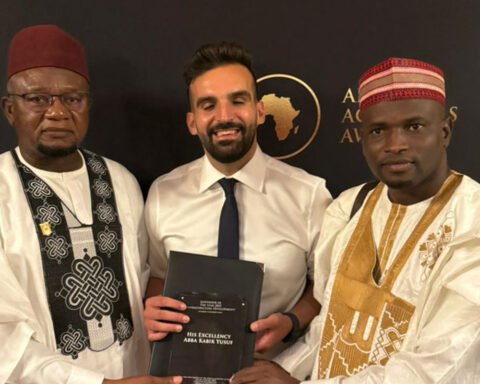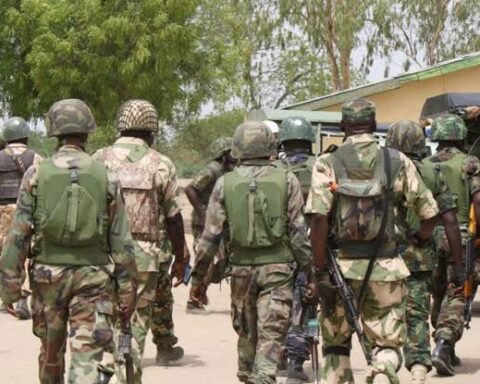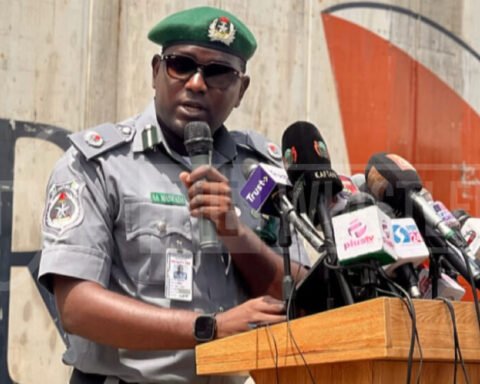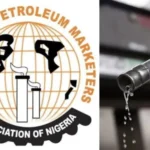By Agbeze Ireke Kalu Onuma,AI-KO
The Asaba Expressway leading to Onitsha and other parts of the South-East and South-South, a critical artery connecting Nigeria’s Southern economic centers, is a road that tells a story—not of progress, but of profound neglect. Two years of unchecked deterioration have transformed this lifeline into a labyrinth of potholes, craters, and chaos. On a recent trip, commuters found themselves ensnared in a Kafkaesque traffic jam, their vehicles dwarfed by the immensity of governmental indifference. Pedestrians outpaced cars, trucks listed precariously like wounded beasts, and the air buzzed with expletives directed at a state government seemingly more invested in political theatrics than public service. This is not merely a broken road; it is a metaphor for a democracy in freefall.
At the edge of the Niger Bridge, the asphalt dissolves into a dystopian landscape. Drivers navigate lunar-like craters, swerving to avoid fractures deep enough to swallow tires whole. “This road is a death trap,” lamented a trucker hauling goods from Owerri, his voice trembling with exhaustion. “Last week, a tanker overturned here. We lost three days—and almost our lives.” Local vendors hawk overpriced water and fried akara and bread to stranded travelers, their makeshift economy thriving on despair.
The situation felt like a cruel joke. Just two days after I wrote an article called “Politicians dey waka, Democracy dey cry”—where I criticized Delta State’s leaders for playing political games instead of working for the people—I got stuck on the exact road that shows how broken our leaders are. The Onitsha-Asaba Expressway, a road I’ve driven on many times, has turned into a disaster zone. It’s falling apart, and it’s proof that those in power don’t care about us.
It all started at 9:37 AM. Our car reached the edge of the new Niger Bridge, and right away, I saw trouble. The sun was blazing, and cars were packed in a twisted line as far as I could see. Up ahead, the road looked like it had been bombed—cracked, full of holes, and difficult to negotiate. Our driver, Emeka, from Abia Line, hit the steering wheel and grumbled, “Not this place again!” Two years ago, this spot was just a little annoying. Now? It’s a nightmare.
For over an hour, we crawled forward. Honking horns, angry shouts, and the creaking of overloaded trucks filled the air. Next to me, a woman in a worn-out dress balanced a basin of Ọha leafs on her head, rushing between cars. “Oga, buy now!” she begged, her voice tired. “Before they spoil in this heat.” Her struggle summed up the whole mess: even the small businesses here survive because things are broken, not in spite of it.
By 11:15 AM, people were fed up. A truck driver in an old soccer jersey climbed onto his truck’s roof, shouting at a traffic officer sitting lazily under an umbrella: “Why do we pay you? Just to suffer?” The officer didn’t care. He just sipped his sachet water bag, acting like this chaos was normal. It made me think: Why would leaders fix a road when they’re probably making money off leaving it broken?
Meanwhile, people walking on foot moved faster than cars. A teenager selling handheld fans grinned as he zigzagged through stuck SUVs. “Look at these rich people suffering like the rest of us!” he joked to his friend. The road, once a bridge connecting communities, now only did one thing: it made everyone equally miserable.
The Delta State government, led by Governor Sheriff Oborevwori, has long acknowledged the road’s plight. Yet, beyond token gestures—a fleeting patchwork of gravel here, a cursory media visit there—the decay deepens. A 2023 report by the Nigerian Bureau of Statistics (NBS) ranked Delta among states with the worst road infrastructure despite receiving over ₦400 billion in federal allocations and internally generated revenue since 2022. Where does the money go?
The governor’s recent defection from the Peoples Democratic Party (PDP) to the All Progressives Congress (APC) mirrors a broader political circus. Recently, Delta’s entire PDP structure collapsed into the APC, a move touted as “strategic realignment.” But for citizens, this spectacle reeks of opportunism. “They’re jumping parties like frogs, but our roads still drown in the rainy season,” spat a mechanic in Asaba.
Investigations reveal a chilling pattern: budgets earmarked for infrastructure vanish into opaque contracts. In 2021, the state allocated ₦78 billion for road rehabilitation. Two years later, auditors found only 12% of projects completed, with ₦34 billion unaccounted for. Contractors linked to the governor’s inner circle, awarded deals without competitive bidding, according to documents leaked to the press. When pressed, the Commissioner for Works shrugged: “Due process was followed.”
The Asaba-Onitsha corridor isn’t just a road—it’s a microcosm of Nigeria’s institutional rot. Over 80% of goods from the South-East to Lagos pass this route. Delays caused by the road’s state inflate transport costs by 40%, per the Lagos Chamber of Commerce. Farmers watch helplessly as perishables spoil in traffic; accidents claim lives monthly. “My daughter died here when her okada [motorcycle] skidded into a ditch,” shared a weeping mother in an online interview. “The government killed her as surely as if they’d pushed her.”
The road wasn’t just bad—it felt like a nightmare. The worst part was only 500 meters long, but it was full of potholes, some so deep they could tear a car tire. One hole had already trapped a sedan, its driver yelling angrily into his phone while his front wheel disappeared into the ground. A Vulcanizer nearby shook his head and said, “Last month, a fuel tanker spilled diesel here. We almost had a fire, but nobody came to help.” His words sounded like a sad goodbye to a road everyone had given up on.
A little farther ahead, a bus with a pregnant woman heading to a hospital in Asaba was stuck in the same traffic. The driver joked, “We left Enugu at 6 AM! By now, the baby might be born right here in this traffic!” People laughed, but it wasn’t a funny joke—it was the kind of laugh that hides frustration. Above us, old billboards showed the governor smiling next to fake pictures of perfect roads. One said “Delta Rising!” A motorcycle rider saw me looking and snapped, “They’re not rising anything but our frustration.”
This wasn’t an accident—it felt intentional. Every crack in the road seemed like proof that money meant to fix it had vanished into some politicians’ pockets. Two years ago, the governor promised on TV to fix this road. Now, he’s too busy switching political parties, shaking hands with big shots in Abuja, and planning his next move. Meanwhile, this road—which carries most of the goods from the Southeast to Lagos, Benin, Abuja and several other places and vice versa —is falling apart. Traders lose money because deliveries are late, food rots in trucks, and young people can’t find real jobs. But the government acts like this is just a small price to pay for their political games.
People in the traffic jam weren’t holding back. One commuter, a wholesale dealer, leaned into our car window and said, “I used to travel to Lagos three times a week. Now I’m down to one. All my profit goes into fuel and fixing my car!” He added, “Do these politicians even use this road? Or do they fly helicopters?” A logistics manager with GIG logistics , Mr. Tunde, waved his broken phone and said, “Look at my app! All my deliveries are late. Customers are leaving us. But our leaders? They’re too busy jumping parties to fix this mess.” A young man, covered in sweat and dirt, chimed in: “I voted for ‘Delta Rising,’ but the only job here is pushing cars out of potholes. We’re drowning!”
When we finally escaped the traffic, my clothes were soaked with sweat and anger. This road wasn’t just broken—it was a symbol of everything wrong with our leaders. The governor didn’t switch parties for the people; he did it to save himself. Just like he abandoned his old party, he’s abandoned the people who voted for him. As we drove past a bright new APC campaign poster saying “Progress in Action!”, my driver Emeka laughed bitterly. “Same old tricks, new name,” he said. The road’s ruins seemed to whisper: How long will we let leaders ignore us while our country suffers?
Minutes later, we heard a news alert on local radio: “Delta Governor plans a Mega Million Party Rally After Switching to APC.” I shut my eyes, imagining the mother we’d left behind in the traffic, her Ọha leaf slowly rotting in the heat.
Delta’s problems follow the same old corrupt pattern, like a broken record everyone’s tired of hearing. First, politicians approve fake road projects. Money gets handed out, but nothing ever gets built—just contracts on paper, disappearing like smoke. When repairs do happen, contractors cut corners, using cheap materials that crumble after one rainy season. Meanwhile, the governor distracts everyone with flashy rallies, smiling in photos with VIPs, shouting slogans while roads turn to dust.
It’s not just Delta’s problem. A 2022 report found Nigeria loses $10 billion every year to corruption in projects like roads and bridges. Delta, with its vital highways, is a big part of this shame. But other states show it doesn’t have to be this way. Lagos fixed its Lekki-Epe Expressway by partnering honestly with companies, creating smooth toll roads. Even Kano, under the same APC party, rebuilt 50km of city roads in two years. Delta’s failure isn’t about money—it’s about leaders who’d rather steal than serve. As one protester shouted: “They dress in fine robes but act like vultures, eating our future while we pay the price.”
The Asaba-Onitsha Expressway isn’t just cracked asphalt—it’s a broken promise. Every pothole is proof that leaders care more about power than people. Governor Sheriff Oborevwori could switch parties again tomorrow, but it won’t bring back the child who died in a ditch because ambulances couldn’t navigate the ruins. Until politicians face consequences, until contracts go to workers—not their cronies—our roads will stay as lifeless as graveyards.
Seven months ago, in October 2024, a citizen named Ossai Ovie Success posted what at most was a propaganda statement than a glimmer of hope on Facebook: “FAILED ASABA-ONITSHA PORTION OF BENIN-ONITSHA EXPRESSWAY: Onyeme Heaves Sigh Of Relief As Remedial Work Commences.” The report detailed Deputy Governor Monday Onyeme’s theatrical “on-the-spot assessment” of the road, complete with camera-ready sighs and promises that “nightmares” would soon end. Officials swore the contractor would fix one lane “within a week,” then return after the rainy season for “proper work.” Fast-forward to April 27, 2025: I crawled through that same stretch, watching pedestrians overtake trucks buried axle-deep in mud. When I called locals while drafting this essay, they laughed bitterly. “Seven hours!” one driver spat. “Nothing changed since Ossai’s post. Onyeme’s ‘remedial work’ evaporated like morning dew.”
Onyeme’s 2024 press statement now reads like satire. He praised contractors for “a good job” on roads “not meant for certain class of vehicles”—a shameless blame-shift, as if potholes materialize from thin air rather than years of theft. His “technical team” promised paperwork, but all they delivered were excuses. The deputy governor’s gratitude to the Federal Government for “mobilizing workers” rings hollow when, seven months later, the only “workers” visible are hawkers selling fuel to stranded drivers. Meanwhile, Onyeme’s entourage—Commissioners for Works, Information, a Director-General, press secretaries—paraded like a Nollywood cast, their convoy gleaming under the sun while citizens baked in gridlock. Their solution? Empty threats to “restrict trucks” from local roads, paired with hand-wringing about “economic consequences.” Translation: Let the people suffer. Business must go on.
This isn’t governance—it’s gaslighting. Onyeme’s “plans on top of the situation” crumbled faster than the asphalt. His 2024 vow to “repair all failed portions within Asaba” dissolved into the same swamp swallowing cars today. The road’s carcass, littered with shattered axles and abandoned tires, mocks every promise. When leaders label failure as “progress,” when press releases replace pavement, democracy isn’t just crying—it’s choking on their lies.
As night falls on the Niger Bridge, cars still creep forward. Drivers honk angrily or whisper prayers. A spray-painted graffiti sign greets them: “Welcome to Delta—Land of Broken Promises.” The road, like the people, waits for leaders who’ll finally fix what they’ve destroyed.
©️AI-KO
Follow us on all social media platforms @dailyquery for news and analyses around the globe.



























